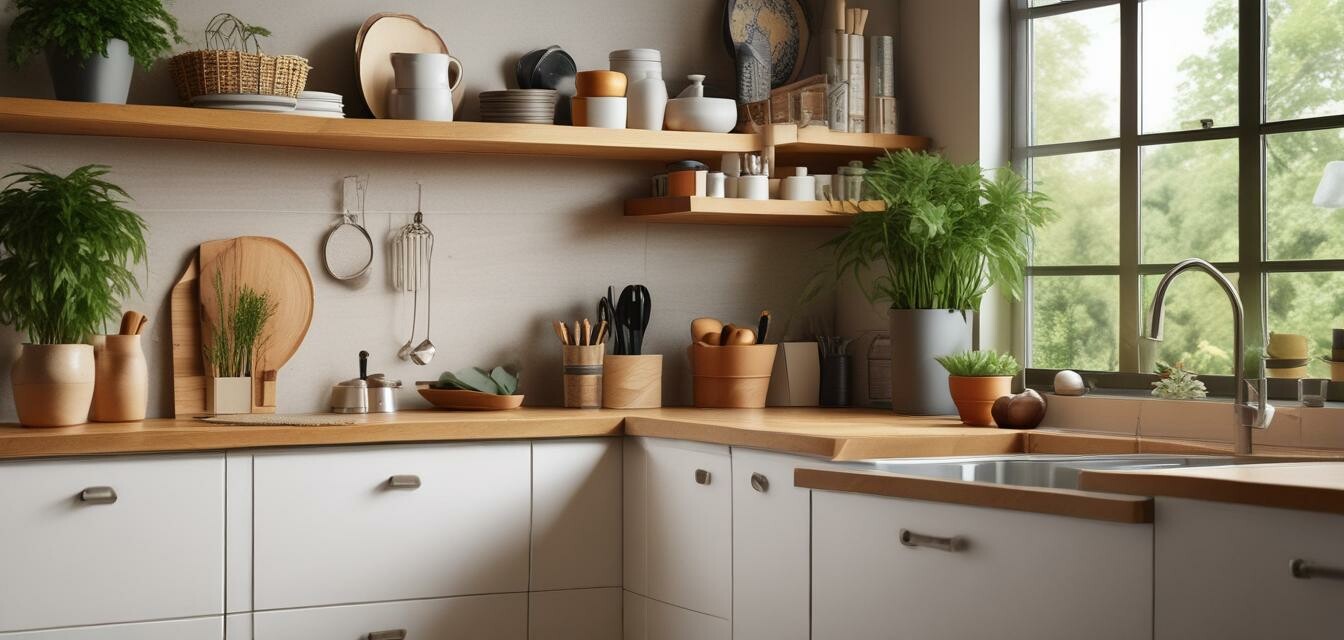
The Impact of Biodegradable Kitchen Products
- Biodegradable kitchen products help reduce plastic pollution.
- Consumer awareness of sustainability is driving demand for these products.
- These products decompose naturally, contributing to soil health.
- Market trends indicate a growing shift toward eco-friendly kitchenware.
- Educational initiatives are crucial in promoting biodegradable options.
In recent years, the world has seen a significant shift towards sustainability, and one key area leading this charge is the kitchen. The advent of biodegradable kitchen products is revolutionizing how we approach our daily routines while caring for the planet. From utensils to storage solutions, embracing biodegradable options is not just a trend but a movement towards a healthier Earth. Let's dive into the impact of these products, their environmental benefits, and how consumer choices are shaping the industry.
What are biodegradable kitchen products?
Biodegradable kitchen products are items designed to break down naturally in the environment, ultimately returning to the soil without releasing harmful toxins. These include:
- Biodegradable utensils
- Compostable plates and bowls
- Eco-friendly storage containers
- Biodegradable trash bags
Environmental impact of biodegradable products
Reducing plastic pollution
Plastic waste has become a global crisis, harming wildlife and polluting oceans. By using biodegradable kitchen products instead of traditional plastic, we can significantly reduce the amount of waste sent to landfills and foster a cleaner environment.
Contributing to soil health
When biodegradable products decompose, they enrich the soil rather than contribute to its degradation. This natural process supports ecosystems and encourages healthy plant growth.
The growing consumer adoption
More consumers are recognizing the importance of sustainability. Recent studies indicate a significant increase in the interest towards eco-friendly products:
| Year | Percentage of Consumers Preferring Biodegradable Products |
|---|---|
| 2018 | 40% |
| 2020 | 60% |
| 2022 | 75% |
As shown in the table above, the movement towards biodegradable kitchenware is rapidly gaining traction. Consumer preferences are shifting, and this trend is reshaping the market dynamics. Explore compostable kitchen tools for more options.
Current trends in the biodegradable kitchenware market
Innovative materials
The development of new materials such as plant-based plastics and biodegradable polymers is revolutionizing the market. These materials offer durability comparable to traditional products while being friendlier to the environment.
Increase in product variety
The rise in demand for biodegradable kitchen products has resulted in an extensive variety of options, catering to various consumer needs. There's now something for everyone, from biodegradable cutlery to eco-friendly food containers.
Challenges and solutions
Consumer awareness
Despite growing interest, many consumers still lack knowledge about biodegradable products. Outreach and education are essential to bridge this gap. Simple yet effective solutions include:
- Campaigns that highlight the benefits of switching to biodegradable options.
- Collaborating with local stores to promote eco-friendly kitchens.
- Launching informational websites dedicated to sustainable kitchen products.
Pros
- Helps in reducing landfill waste.
- Contributes to healthier soil and ecosystems.
- Encourages sustainable consumer habits.
- Innovative and diverse product range.
Cons
- Higher cost compared to traditional plastic options.
- Limited availability in some areas.
- Misunderstanding of biodegradability vs compostability.
Conclusion
The impact of biodegradable kitchen products extends beyond mere convenience; they are paving the way for a more sustainable future. With growing consumer adoption and innovative product developments, these items are poised to play a crucial role in reducing plastic pollution and enhancing soil health.
For more insights and trends in the eco-friendly kitchenware industry, visit our News and trends section.
Key resources and additional reading
To explore more about sustainable kitchenware, check out these articles:



